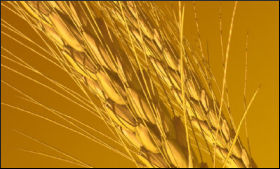|
|
|

|
CCEA approves MSP hikes for 6 rabi crops
|
|

|
|
| Top Stories |
 |
|
|
|
SME Times News Bureau | 21 Sep, 2020
The Cabinet Committee on Economic Affairs (CCEA) chaired by Prime
Minister Narendra Modi on Monday approved the hike in the Minimum
Support Prices (MSPs) for all mandated six Rabi crops in crop season
2020-21 (July-June).
While announcing the MSP hikes in the Lok
Sabha, Union Agriculture Minister Narendra Singh Tomar reiterated that
procurement of crops at MSP will continue across the country.
The increase in MSPs is in line with the recommendations of the Swaminathan Commission, as per a Agriculture Ministry statement.
"Working
for the welfare of farmers is a matter of good luck for us. The Cabinet
has taken a historic decision on the MSP increase in tune with our
priority to work for those providing us food. Crores of farmers will
benefit from the decision," Modi tweeted in Hindi.
The highest
increase in MSP has been announced for lentils (Rs 300 per quintal),
followed by gram, rapeseed and mustard (Rs 225 per quintal each) and
safflower (Rs 112 per quintal).
For barley and wheat, an
increase of Rs 75 per quintal and Rs 50 per quintal respectively has
been announced. The differential remuneration is aimed at encouraging
crop diversification.
The MSP of wheat for crop season 2020-21
has been raised from Rs 1,925 to Rs 1,975 per quintal and that of barely
from Rs 1,525 to Rs 1,600 per quintal.
MSP of lentils for the
same season has been fixed at Rs 5,100 per quintal, and Bengal gram or
chana at Rs 5,100 per quintal. For the crop year 2020-21, the MSP of
rapeseead and mustard has been fixed at Rs 4,650 per quintal. Similarly,
the MSP of safflower has been increased to Rs 5,327 per quintal.
The
expected returns to farmers over their cost of production are estimated
to be highest in the case of wheat (106 per cent) followed by rapeseed
and mustard (93 per cent), and gram and lentil (78 per cent). For
barley, the return to farmers over their cost of production is estimated
at 65 per cent and for safflower 50 per cent.
The Food
Corporation of India (FCI) and other designated state agencies would
continue to provide price support to the farmers, said Tomar.
The
government has set up a buffer stock of pulses and domestic procurement
of pulses is also being done under the Price Stabilisation Fund (PSF),
he added.
The umbrella scheme of 'Pradhan Mantri Annadata Aay
Sanrakshan Abhiyan' (PM-AASHA), comprising Price Support Scheme (PSS),
Price Deficiency Payment Scheme (PDPS), and pilot Scheme of Private
Procurement and Stockist Scheme (PPSS) will aid in the procurement of
pulses and oilseeds, said the Minister.
Despite global COVID-19
pandemic and consequent nationwide lockdown, timely intervention made by
the Centre led to an all-time record procurement of wheat at about 39
million tonne for Rabi Marketing Season (RMS) 2020-21 and around 43 lakh
farmers benefited under procurement operations period, which is 22 per
cent higher than the RMS 2019-20, said the statement.
In 2019-20, 390 lakh tonne wheat is estimated to be procured, while in 2014-15, 280 lakh tonnes was procured.
In 2019-20, 15 lakh metric tonne pulses is estimated to be procured, while in 2014-15, 3 lakh tonnes was procured.
In
2019-20, 18 lakh metric tonne oilseeds is estimated to be procured,
while in 2014-15, 12,000 metric tonne was procured, as per the Ministry.
|
|
|
| |
|
|
|
|
|
|
|
|
|
|
|
|
|
|
| |
| Customs Exchange Rates |
| Currency |
Import |
Export |
US Dollar
|
84.35
|
82.60 |
UK Pound
|
106.35
|
102.90 |
Euro
|
92.50
|
89.35 |
| Japanese
Yen |
55.05 |
53.40 |
| As on 12 Oct, 2024 |
|
|
| Daily Poll |
 |
 |
| Do you think Indian businesses will be negatively affected by Trump's America First Policy? |
|
|
|
|
|
| Commented Stories |
 |
|
|
|
|
|
| |
|